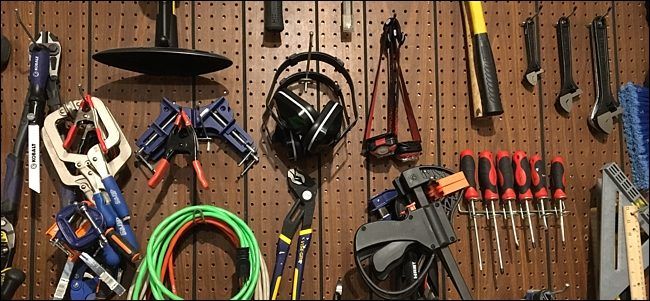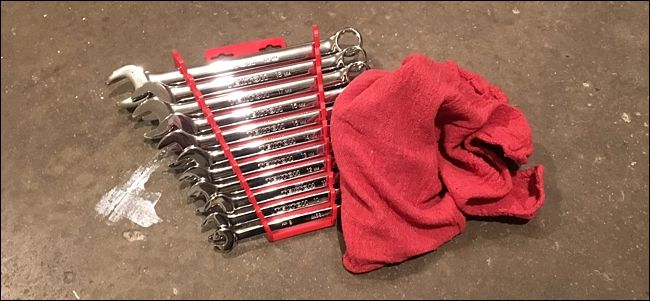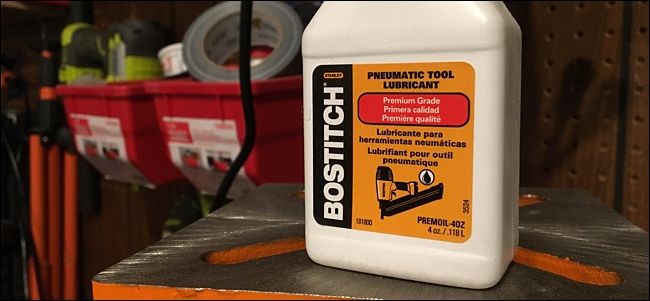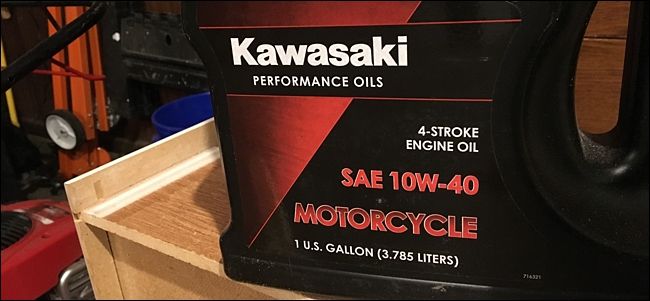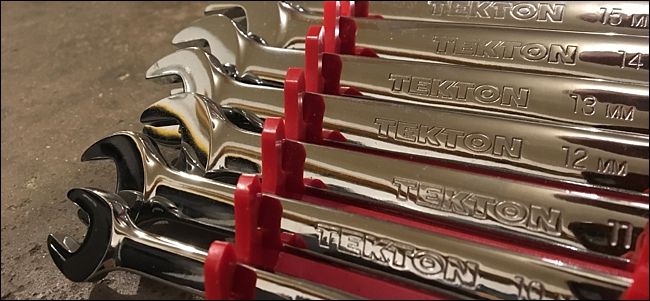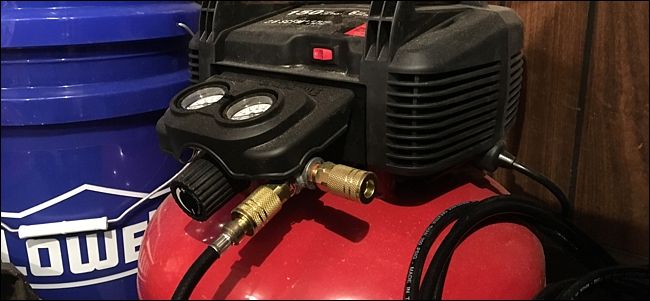Quick Links
Tools can be pretty expensive. If you want to get the most bang for your buck, it's important that you maintain them regularly so that they last as long as possible.
The good news is that most tools don't really require all that much care and maintenance---good tools are made to take abuse. However, they aren't invincible, and after a while your tools will begin to show signs of deterioration if you don't properly take care of them. Here are a few things to keep in mind so that you hopefully won't have to buy replacement tools anytime soon.
Give Tools a Quick Cleaning After Each Use
Dirt and grime on tools accelerates the deterioration process, so if there was only one thing you could do when maintaining tools, it's giving them a quick wipe down after each use.
You don't have to be super thorough, either. Just get a rag and wipe most of the dirt and grime off. When it comes to power tools, take some canned air or use an air compressor to blow into the vents in order to clear out sawdust or drywall dust.
Frequently Lubricate Tools That Need It
Tools that have moving parts that rub against each other can wear down quickly if not properly maintained. Nail guns, ratchets, and adjustable wrenches are good examples.
Just put a very small dab of basic machine oil on any moving part and work it in. This stuff also works great on pretty much anything around the house that can squeak, like door hinges and sliding tracks.
For pneumatic tools like nail guns, it's recommended to use a lubricant designed for such tools. Luckily, it's just as cheap as basic machine oil.
Coat Metal Parts in Oil to Prevent Rusting
Tools are made of metal, and most metal can rust, resulting in corrosion and deterioration. Sometimes there's no way around it, but with your tools, a very light coat of oil can do the trick.
You can use pretty much whatever oil you want. I happen to use just regular motor oil since I always have some lying around. What I like to do is start by applying a liberal amount to my first tool, then wipe off the excess with a clean rag. From there, I'll use that rag to apply oil to all of the other tools. This ensures that I'm not over-applying oil, which can attract a ton of dust onto the tools.
The goal is to coat your tools enough so that when you run your finger across them, the tools feel a bit greasy and some oil residue gets on your finger. Any more than that and you're just wasting oil.
Keep Tools Away from High Humidity
Coating your tools in oil is a good measure to take in order to prevent rusting, but probably the best thing you could do is to store your tools in a dry place away from high humidity.
Moisture accelerates the rusting process, so it's important to keep your tools as dry as possible if you decide not to oil them. You can't really oil the inside of power tools anyway (unless you take them apart), so it's definitely important to keep those in dry locations.
The best way to do this is to store your tools in cases or toolboxes. This creates a microclimate of sorts where it's much easier to control the humidity level. You can even throw in a silicon gel packet or two (those small packets of beads you find in shoes and other products when you buy them) to help with moisture buildup. You can even buy different size dry packs at most hardware stores---or online---if you don't have any on hand.
Chrome-finished tools are more impervious to rust, so buy chrome tools if at all possible, rather than just plain polished steel. Of course, chrome tools aren't invincible to rust, as the chrome finish can chip, so still keep an eye on them.
Drain Air Compressors After Every Use
Air Compressors work by sucking in outside air, compressing it in a tank, and then spewing out that compressed air at high velocities. However, while sucking in air, air compressors also suck in all that moisture that's in the air.
If you didn't get the memo from the previous two sections, moisture is bad for tools. The same goes for air compressors, which is why you need to drain the tank after every use in order to get out all the moisture.
If you don't do this, moisture will continue to build up in the tank with every use. Eventually, you'll end up with a puddle of water at the bottom of the tank that will rust the inside and eventually compromise the tank's structural integrity.
In the End, Don't Sweat It Too Much
As mentioned above, tools are made to be abused, so even if you treat them relatively poorly, they can still last a very long time. I've known some tools that last for decades without the owner doing any proper care, but there are also tools that don't last very long if not well-maintained. A lot of it has to do with the brand. Plus, often you'll find that the more expensive a tool is, the better quality it is.
It's also very possible that you'll want to replace some of your power tools before they even wear down anyway, simply for the new technology that's constantly making power tools better and better.
Most hand tools, on the other hand, don't really improve---a wrench is a wrench and a hammer is a hammer. So it's wise to put just a little bit of care into these tools so that you'll hopefully never have to replace them during your lifetime.

